Bush and Tufted Vetch – Identification, Edibility, Distribution
Bush vetch – Vicia sepium
Tufted vetch – Vicia cracca
– Edibility – 3/5 – Flowers and young shoot tips are delicious. This is not a plant to eat in large quantities, just a nibble or a garnish or scattered through a salad. It seems to be mostly ignored in foraging literature, with occasional insinuations of slight toxicity. This doesn’t bother me in the slightest, I eat loads of things that aren’t especially good for me, most in larger quantities than i’ll ever manage of this. See here for a discussion of the spectrum of edibility. The pods and green seeds (one could hardly call them peas, though they are!) can also be eaten like mange tout when green and tender if lightly simmered in water. Once dry however, like all legumes, the peas should be soaked overnight in water, then the water discarded, before being cooked thoroughly. Although they have been used historically by hunter-gatherers as a source of protein, they are so tiny and fiddly I don’t bother with them – and probably never will unless somebody tells me they taste amazing!
– Identification – 4 – I have listed bush vetch and tufted vetch together as they are quite similar, and can be used in similar ways. Distinguish tufted vetch by its longer “stacks” of flowers. The blue/purple leguminous flowers on fine pea shoots creeping through hedges could easily be confused with wood vetch (Vicia sylvatica) which is larger when fully grown, and common vetch (Vicia sativa) which tends to be pinker. Personally, i’m happy to nibble any of the blue/purple vetches to see if they suit my taste, and use in salads.
– Distribution – 5 – Very common in hedgerows throughout most of the UK.
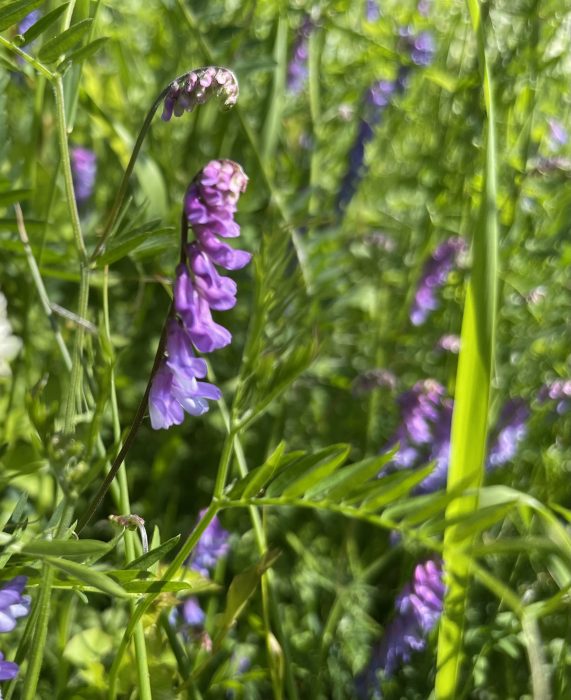
tufted vetch flower and leaf
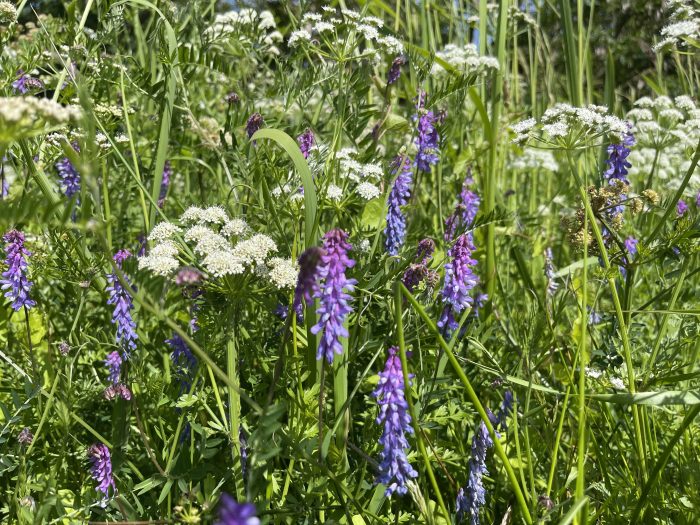
tufted vetch growing through fine-leaved water dropwort
These little tendrils of joy delight me with their quiet insidious clamberings over the less subtle denizens of the hedgerow. Suck the flowers for a tiny, yet hugely rewarding sweet nectar hit, then chew to enjoy generous pea flavours. The delicate leaves and tendrils from the end of the stems make excellent garnishes, in the vein of “microherbs” so popular with chefs nowadays. Only these are nicer. And free.
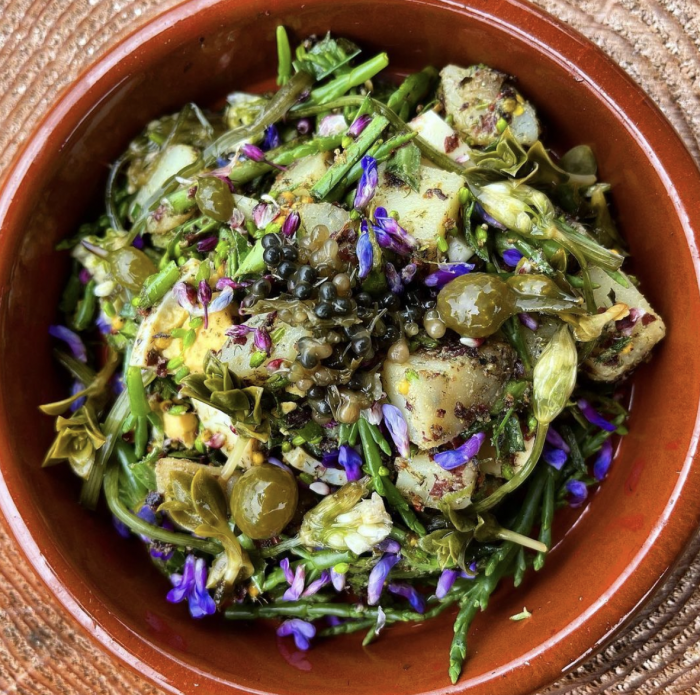
Galloway new potato & smoked egg salad with sea plantain. and some other coastal pleasures – marsh samphire, dulse, coriander grass seeds, pickled sandwort, egg wrack capers, crow garlic bulbils & tufted vetch flowers.
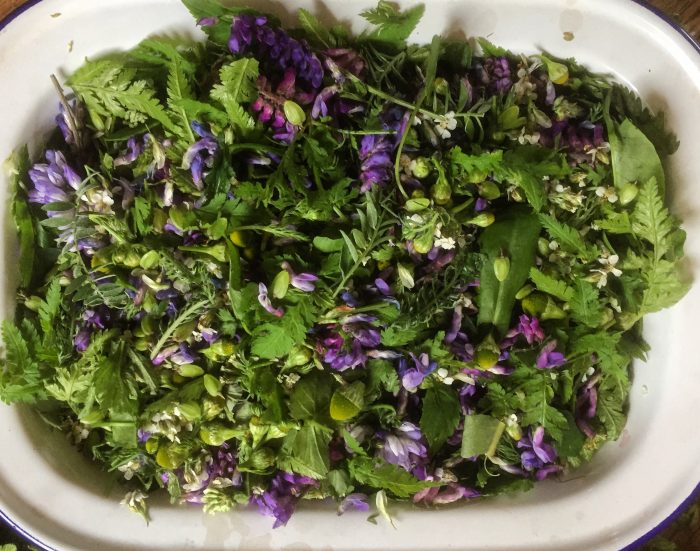
Wild Summer Salad, with tufted vetch
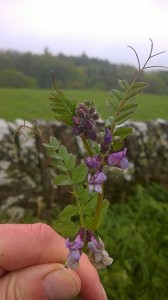
1 Comment
Hi there pal..the vetch seeds are a great source of protein and energy. They were very useful in the neolithic times. I’ve eaten quite a few of the very young seeds which taste just like peas. Obviously when they mature and become hard they need to be treated as you say.
I appreciate the whole plant. It was another great plant to learn about many years ago. I wouldn’t gather many or any anyway out of respect for other creatures that use this food source and to encourage the seeds to spread. I have lots of lentils in the cupboard anyway.
Thanks for the site